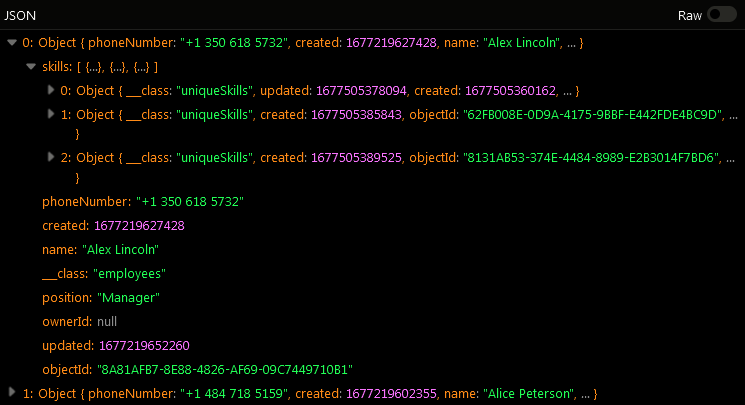Single Step Retrieval¶
Important
Single Step Retrieval loads only a partial set of the related objects (default size of the retrieved related collection is 10). To load additional related objects, use the Relation Paging API .
This approach allows retrieval of a partial set of the related objects along with the parent object in a single findor findById request. Each relationship property (column) must be uniquely identified by name using the API documented below.
Retrieve a specific object with relations:
The xxxx.backendless.app is a subdomain assigned to your application. For more information see the Client-side Setup section of this documentation.
GET http://xxxx.backendless.app/data/[TABLE-NAME]/[OBJECT-ID]?loadRelations=[RELATED-PROPERTY-NAME][,RELATED-PROPERTY-NAME]
The comma between the RELATED-PROPERTY-NAME names must be URL-encoded as %2C.
Retrieve multiple objects from the table with relations:
GET http://xxxx.backendless.app/data/[TABLE-NAME]?loadRelations=[RELATED-PROPERTY-NAME]
where:
| Argument | Description |
|---|---|
[TABLE-NAME] |
Name of the table from which the data is to be loaded. |
[OBJECT-ID] |
objectId of the object to retrieve. |
[RELATED-PROPERTY-NAME] |
Name of the related property to load. For example, if table Person has a relation column homeAddress pointing to an object in the Address table, the value of the prameter would be homeAddress. The syntax allows to add relations of relations. For example, if the same Address table has a relation country pointing to the Country table, then homeAddress.country would instruct the backend to load the related Country object. It is possible to specify multiple related property names. In this case they must be separated by URL-encoded (%2C) commas |
Codeless Reference¶
Consider the following structure of the data table called employees :
As you probably noticed, the skills column has a relation to the uniqueSkills data table with the following structure:
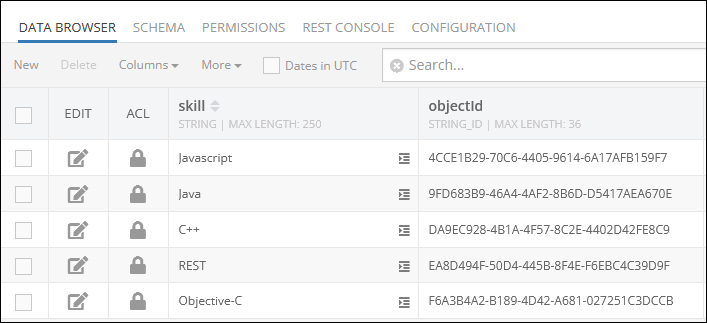
One-to-many relation stored in the skills column references the following objects stored in the uniqueSkills data table:

The example below retrieves all related objects of the parent object: Notice how the parent object is retrieved using the where clause condition: to obtain one object you must reference the objectId of the record in the where clause property.
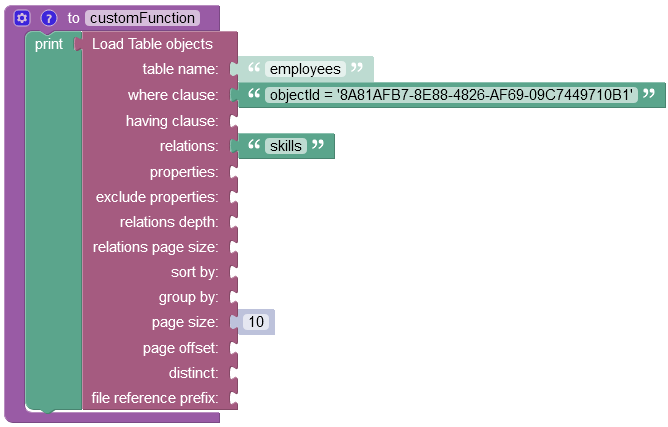
Important
For a detailed description of all input parameters see the Basic Object Retrieval topic of this guide.
After the Codeless logic runs, the operation returns the parent object containing three related children objects:
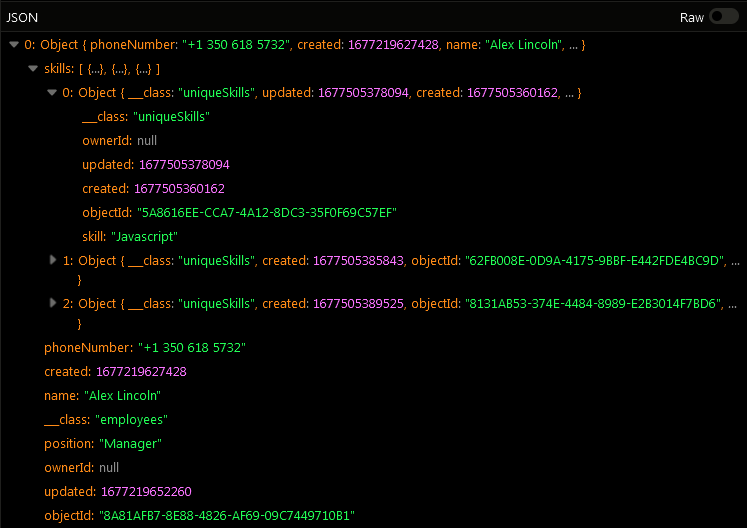
The example below retrieves all parent objects and the corresponding related children objects from the data table:
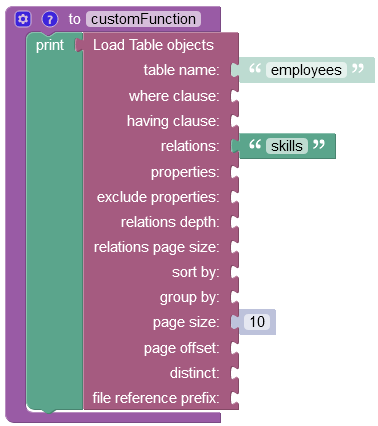
After the Codeless logic runs, the operation returns two parent objects containing related children records:
